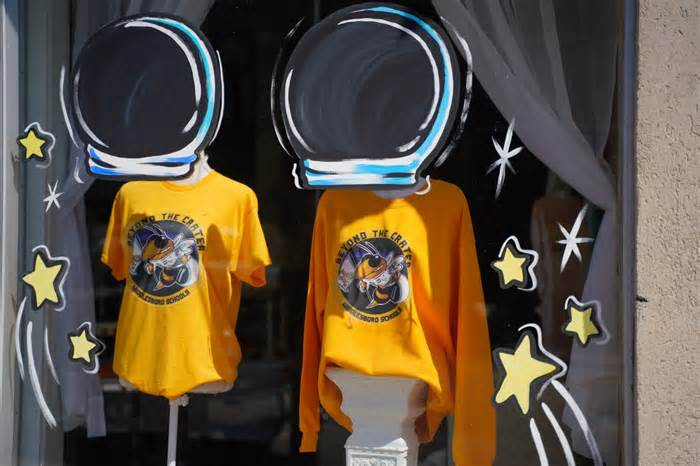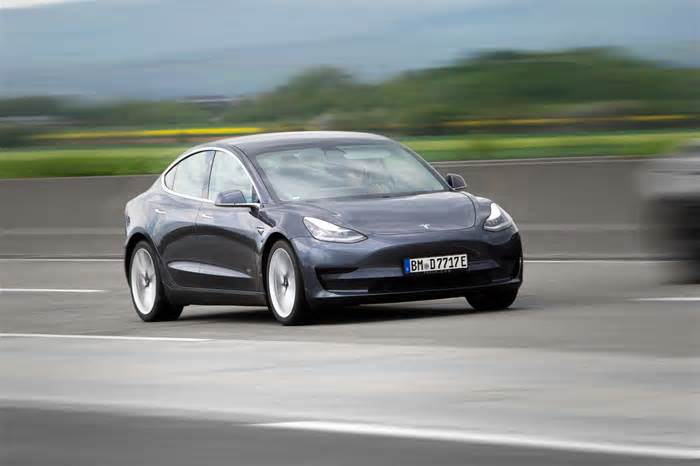
How Republican Billionaires Learned to Love Trump Again
- by The New Yorker
- Oct 18, 2024
- 0 Comments
- 0 Likes Flag 0 Of 5

October 18, 2024
“There wasn’t an alternative to not be for Trump,” a Republican fund-raiser said. “The alternative would be for no one.”
Illustration by Ricardo Tomás Shop
Weeks later, during a speech at the Economic Club of New York, Trump formally announced his support for a “government-efficiency commission” that would “conduct a complete financial and performance audit of the entire federal government.” He proposed that Musk, despite having received billions of dollars in government contracts and subsidies for his ventures SpaceX and Tesla, should chair the effort. Soon, Trump was calling Musk his future “Secretary of Cost Cutting.” It sounded like a more ambitious version of a project that Trump had launched early in his Presidency, when he named the billionaire investor Carl Icahn as a special adviser in charge of overhauling federal regulations. Icahn left the role less than a year later, when an article in this magazine raised questions about potential conflicts of interest.
Trump has long made a practice of telling potential supporters what they want to hear. This year, he has also changed previous policy positions in ways that would benefit some of his party’s largest donors. In March, for example, he publicly reversed course on forcing the sale of the Chinese-owned social-media app TikTok, despite having signed an executive order, in August, 2020, stating his intention to ban the app if it was not sold to a U.S.-based buyer within forty-five days. Back then, Trump warned that a Chinese company owning so much of Americans’ personal data was a national-security threat. But this winter, when the Biden Administration endorsed a bipartisan bill to force TikTok’s sale, Trump came out against the measure. On Truth Social, he wrote, “If you get rid of TikTok, Facebook and Zuckerschmuck”—his derogatory name for Facebook’s C.E.O., Mark Zuckerberg—“will double their business.” Steve Bannon, Trump’s former adviser, posted another explanation for the about-face: “Simple: Yass Coin.”
Days earlier, at an event in Florida for the conservative group Club for Growth, Trump had met with Jeff Yass, a major investor in TikTok’s parent company, ByteDance. Yass, a libertarian-leaning Wall Street billionaire who started out as a professional poker player, has not officially endorsed Trump or donated directly to him. Instead, he has given more than $25 million to the Club for Growth PAC, which is supporting the ex-President’s reëlection. (According to OpenSecrets, Yass and his wife have contributed more than $70 million to conservative candidates and causes this election cycle.) Yass also appears to have had a hand in Trump’s personal enrichment. This spring, the company behind Truth Social merged with Digital World Acquisition Corp., a company in which Yass’s trading firm, Susquehanna, was the single largest institutional investor. Truth Social went public in March, and Trump’s majority stake in the company is now worth an estimated $3 billion.
Perhaps the most striking example of the former President’s donor-friendly flexibility in 2024 has been his shift on the cryptocurrency industry. In recent years, he was unambiguously critical of bitcoin, the most widely traded digital currency, saying it “seems like a scam” and “potentially a disaster waiting to happen.” But, in 2024, he became an unapologetic promoter of it, attracting contributions from major players in the field, such as the twin brothers Cameron and Tyler Winklevoss, each of whom donated $1 million in bitcoin to help Trump. The former rowing stars who famously sued Zuckerberg, their classmate at Harvard, for allegedly stealing the idea for Facebook, went on to found the cryptocurrency exchange Gemini. (In a speech this summer, Trump called them “male models with a big, beautiful brain.”) This year’s Republican Party platform offers few details on many policy issues affecting Americans, but it is unusually specific on crypto, promising to “defend the right to mine Bitcoin” and opposing the creation of a “Central Bank digital currency,” which could threaten the crypto industry’s biggest investors.
In July, Trump flew to Nashville for the Bitcoin 2024 conference, where he spoke shortly after one of his top fund-raisers, Howard Lutnick. Lutnick, the C.E.O. of the Wall Street firm Cantor Fitzgerald, has become a leading public proponent of the crypto industry; at the conference, he announced a plan to lend $2 billion to crypto investors, allowing them to use bitcoin as collateral. Onstage, Trump said that his Administration would permit the creation of so-called stablecoins, which, he promised, would “extend the dominance of the U.S. dollar to new frontiers around the world.” Trump also promised to fire Gary Gensler, Biden’s chairman of the Securities and Exchange Commission, whose pro-regulatory positions on crypto have outraged bitcoiners. The United States, Trump vowed, “will be the crypto capital of the planet.”
Lutnick, who has known Trump for thirty years and who once made a guest appearance on “The Celebrity Apprentice,” supported Trump’s previous campaigns. But he has significantly increased his giving in 2024. According to Bloomberg, Lutnick and his wife donated $30,200 to Republicans in 2016 (though he also gave $1 million to Trump’s 2017 Inauguration committee), $1.3 million in 2020, and $12.1 million so far this year. In May, during the former President’s trial in Manhattan, Lutnick hosted a fund-raiser for him at Lutnick’s apartment in the Pierre hotel. In early August, he held another event at his forty-acre estate in Bridgehampton, which brought in $15 million; seats for a roundtable with Trump in Lutnick’s dining room went for $250,000. The following Monday, MAGA Inc., a pro-Trump super PAC, recorded a $5-million donation from Lutnick, the largest individual political gift he’d ever made.
After the Bitcoin event in Nashville, Trump brought Lutnick on board his plane, Trump Force One, to a campaign stop in Minnesota, where Lutnick introduced Vance. Lutnick later told an interviewer that travelling to a rally with the former President was like “going to a rock concert with Mick Jagger.” During the trip, Lutnick said, Trump offered him a formal role as co-chair of his Presidential transition team. The decision was announced a few weeks later, after the fund-raiser at Lutnick’s Bridgehampton home. Another co-chair is Linda McMahon, the former head of the Small Business Administration in the Trump Administration. She, too, is a wealthy donor who, according to federal records, has given more than $10 million to support Trump in 2024.
That same month, Trump announced that he and his sons Don, Jr., and Eric were getting into the crypto business themselves. Steve Witkoff, a New York real-estate mogul and a major Trump donor, who testified on Trump’s behalf during his civil fraud trial this year, helped set up the venture, called World Liberty Financial. One of the entrepreneurs brought in as a partner, Chase Herro, was later revealed to have referred to himself as “the dirtbag of the Internet.” Trump, during a rambling two-hour live-stream rollout on X, struggled to describe how exactly the new business would work, or even when it would launch. “Crypto is one of those things we have to do,” he said. “Whether we like it or not.”
By then, Lutnick’s sphere of influence had moved well beyond bitcoin. In October, he told the Financial Times that appointees in a second Trump Administration would be subject to a strict “loyalty” test to avoid the kinds of senior aides who sought to constrain Trump during his first term. “Those people were not pure to his vision,” Lutnick said. “We’re going to give people the role based on their capacity—and their fidelity and loyalty to the policy, as well as to the man.”
For all Trump’s success in winning back reluctant conservative billionaires, many of them have seen firsthand the ways in which his erratic behavior and anti-market ideas could disrupt their businesses and the wider economy. After Trump became President, he asked Schwarzman to enlist high-profile business executives to serve on an advisory council. The participants included Musk; Jamie Dimon, the C.E.O. of JPMorgan Chase; Mary Barra, of General Motors; Bob Iger, of Disney; Larry Fink, of BlackRock; and Jack Welch, the former C.E.O. of General Electric. It was a perfect Trump setup: the biggest brand names in American business would come to the White House, kiss his ring, and offer free advice. But, as one of the panel’s members recalled, the first session quickly devolved into an argument between Trump and several participants over his false allegation that China was manipulating its currency. In the summer of 2017, following Trump’s comments about there being “very fine people on both sides” of the white-supremacist march in Charlottesville, Virginia, the group convened an emergency call and decided to disband. After Schwarzman conveyed the news to the White House, Trump preëmptively tweeted that he had decided to shut the group down.
Early this summer, Trump’s campaign surprised the Business Roundtable, a members-only organization of corporate C.E.O.s, with a last-minute acceptance for the ex-President to appear at the group’s quarterly meeting in Washington. Andrew Ross Sorkin, the Times’ financial columnist and a host of “Squawk Box,” on CNBC, reported that even C.E.O.s at the meeting who were sympathetic to Trump had found the former President uninformed and “remarkably meandering.” A source in the room told me that Trump’s digressions included complaints about his court cases and “crazy rants about Venezuelan immigrants.”
Soon after the event, Jeffrey Sonnenfeld, a professor at Yale University who tracks the political preferences of America’s corporate leaders, wrote in an op-ed for the Times that not a single Fortune 100 C.E.O. had donated to Trump by June of this year, something he called a “telling data point.” In fact, Sonnenfeld argued, the lack of giving to Trump from traditional Republican donors in the business community was the real fund-raising story, “a major break from overwhelming business and executive support for Republican Presidential candidates dating back over a century.” Sonnenfeld told me that such giving “fell off a cliff” when Trump became the Party’s nominee—going from more than a quarter of Fortune 100 C.E.O.s in 2012, when Mitt Romney was the G.O.P. candidate, to zero in 2016. In 2020, he noted, only two Fortune 100 C.E.O.s had given to Trump—someone in the energy sector who is no longer running his company and Safra Catz, the C.E.O. of the Oracle software corporation. One lobbyist who speaks with many corporate C.E.O.s told me, “Unanimously, they hate the Biden Administration’s policies. But I think almost unanimously they would much rather deal with that than the risk of catastrophic disaster from a Trump Administration.” By fall, the only Business Roundtable member publicly backing Trump was Schwarzman.
Charles Koch, perhaps the most legendary Republican financier of recent decades, has never backed Trump, either. The political network affiliated with him and his late brother David remained officially neutral in the Presidential races of 2016 and 2020, and spent tens of millions of dollars trying to defeat Trump in this year’s Republican primaries, much of it supporting Haley. When she dropped out, the Koch network concentrated on down-ballot races. But Kochworld, like the Republican Party more broadly, remains divided. “There are a lot of donors in that network lobbying Charles from the perspective of, I know you don’t like him, but he’s better than the alternative,” Marc Short, who worked for a Koch-affiliated group and later served as Vice-President Mike Pence’s chief of staff, said. Nevertheless, neither Koch nor Pence is supporting Trump this fall—a remarkable rift, given the role that each of them has played in Republican politics.
At the same time, Trump has cultivated a new group of what might be called MAGA megadonors. A study conducted for The New Yorker by the campaign-finance expert Robert Maguire, of the nonprofit good-government group CREW, found that, as of this summer, more than forty of the G.O.P.’s biggest super-PAC donors during Romney’s 2012 campaign had never given to a pro-Trump super PAC, including Oracle’s co-founder Larry Ellison, the Dallas real-estate tycoon Harlan Crow, and the hotel magnate J. W. Marriott, Jr. Meanwhile, nearly sixty pro-Trump donors in the study, including Lutnick, Mellon, Perlmutter, and the Wisconsin shipping magnates Richard and Elizabeth Uihlein, had given nothing to the pro-Romney super PAC. Others have significantly increased their giving. The Adelsons, for example, donated $53 million to the pro-Romney super PAC in 2012 and $90 million to support Trump in 2020, when they were the largest individual donors of the cycle. By the end of September, Miriam Adelson had given $100 million to back Trump in 2024.
With such sums at stake, Trump has pursued what the former Bush Pioneer called a “high touch” approach to the Republican billionaire class. The ex-President has all but invited donors to view their contributions as business investments, telling oil-and-gas executives who went to see him in April at Mar-a-Lago, for example, that, because he would allow unrestricted drilling, they should raise $1 billion for his campaign—a statement redolent of Sondland’s “quid pro quo” that soon leaked to the Washington Post. The campaign’s strategy, another longtime fund-raiser told me, was essentially to let Trump be Trump: “He talks the same book to everybody.”
Cartoon by Liana Finck
Please first to comment
Related Post
Jaguars-Eagles: 5 Players to Watch
- Nov 01, 2024
Stay Connected
Tweets by elonmuskTo get the latest tweets please make sure you are logged in on X on this browser.
Sponsored
Popular Post
Tesla: Buy This Dip, Energy Growth And Margin Recovery Are Vastly Underappreciated
28 ViewsJul 29 ,2024






 Energy
Energy


















